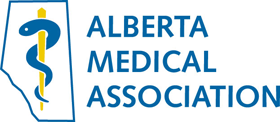Mask exemptions, Building AMA strength from within
May 14, 2021

Dear Members:
Mask exemptions
Yesterday, government released a new public health order stipulating that medical exemptions for mask use will be allowed for a list of “verified health conditions.” An exemption letter will be required from a physician, nurse practitioner or psychologist.
We understand that the College of Physicians & Surgeons was informed about this and they have posted further information, including government’s list of conditions, CPSA guidance to the profession, letter templates and more.
Alberta Health has advised that the appropriate in person or virtual visit fee can be billed for the necessary assessment. Completion of the form is an uninsured service and should be handled per your usual practice habits and rate setting to reflect your professional and administrative costs; the AMA’s Guidelines to Billing Uninsured Services (member log in required) can assist with setting appropriate rates. As always, you must consider the patient’s ability to pay and be prepared to discuss the fee with the patient.
Growing stronger through equity, diversity and inclusion
Much attention over the past year has been paid to how the AMA relates to the external health care system. The Board of Directors also has a responsibility to look inward to ensure the strength and vibrancy of the organization.
Promoting equity, diversity and inclusion (EDI) within leadership and our volunteer workforce is not only critical to our organization’s strength, but also a hallmark of excellence. Diversity at leadership tables also brings a broader scope of lenses and opinions, which leads to richer decision making. I am pleased to introduce the membership to a powerful new means to advance EDI: the AMA Physician Leadership Toolkit for Encouraging and Promoting Diversity and Inclusion.
Associations are collectives of individuals who come together for common interests and aims. Strong associations are places where those members feel that they belong, are safe, included and can see themselves reflected in the leadership. It’s also important for everyone to feel that they have equitable access to opportunities within the association. We must recognize that there are barriers to inclusion that must be actively overcome: a responsibility we all share.
Background
Since 2018 the Board has actively sought to demonstrate leadership in topics affecting the profession and society-at-large including: respect; diversity; inclusion; leadership; and wellness. This led to Wellness as a new Key Result Area within our business plan. This goal states that, “The AMA is committed to working with and for physicians to address system issues which impede attaining a safe, healthy and equitable working environment.”
The AMA’s Healthy Working Environments Advisory Committee (HWEAC) has been the primary channel to identify opportunities and strategies. The HWEAC identified four priority areas to focus its work. Priority #1 is: “to promote and recruit a representative AMA.” The HWEAC was also guided by a March 2019 Representative Forum resolution: “That AMA sections are encouraged to incorporate diversity and inclusivity in recruitment for section leadership.” This was the impetus for developing a toolkit. It is designed to support the recruitment and appointment of diverse candidates to AMA committees and other governance bodies. The toolkit was created by Lori Campbell, PhD, Principle, Colbourne Institute for Inclusive Leadership (Norquest College). Representatives from several external organizations were consulted to inform the toolkit’s contents.
Toolkit in use
The Board of Directors has endorsed the toolkit and undertook an orientation session to adopt it. The AMA’s Nominating Committee, responsible for so many important nominations including the president-elect and the standing committees, will participate in orientation sessions next week.
We are eager to ensure that this valuable tool is made widely available. We will be encouraging sections to adopt it in their work to promote EDI. Over time, this will contribute to the AMA’s own diversity, from our physician workforce to our governance leaders in the Representative Forum and the Board itself.
The journey towards EDI does provide challenges. Even with a strong mandate within the organization, we have not always gotten things right. We have been learning from each other and other partners. This toolkit is a result of these collaborative efforts. Wanting this to happen is not enough, we must actively seek EDI if we are to achieve it. We hope that by actively applying this toolkit to our work, that we will be increasingly effective in achieving these very important objectives. We know that we will be stronger as a result.
I hope that you will take the opportunity to review the toolkit yourself and that you find it applicable in other parts of your professional life also. The toolkit will be a living document, reflecting ongoing engagement with equity-seeking groups. I welcome your thoughts on this.
Before closing I want to take the opportunity to note that May 10 to 16 is National Nursing Week, including International Nurses Day on May 12. We have always valued the professionalism of our nursing colleagues and know the importance of the support and care they provide. This pandemic year has shone new light on all that they contribute and their dedication to the patients we serve together. All Albertans owe them a debt of gratitude.
Your comments are welcome in the following ways:
- Communicate with me privately and directly by email if you would like a reply: president@albertadoctors.org
- Comment publicly on this President’s Letter on the AMA website (please be aware that comments are public, i.e., not members-only, even if you are logged in as a member).
Sincerely,
Paul E. Boucher, MD, FRCPC
President, Alberta Medical Association

No comments
Commenting on this page is closed.